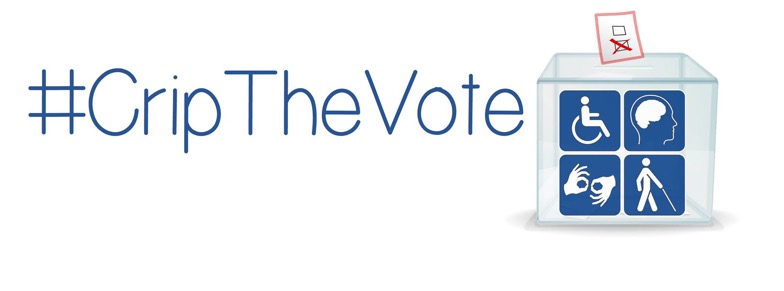#CripTheVote: Notes On “Crip”
/While #CripTheVote has gotten a lot of disabled people excited about participating in this year’s elections, a few folks have questioned our decision to make “crip” a key component of the hashtag. Since the complaints and concerns have been mostly expressed carefully, thoughtfully, and with respect, we feel it makes sense to explain ourselves a bit further, for those who might be interested.
Here is our thinking:
- Selective use of “crip” or “crippled” by people with disabilities is a conscious act of empowerment through “reclaiming” a former slur as a badge of pride. “Selected use” means we don’t use it all the time, in every situation. We exercise judgment in when and where it’s appropriate to use.
- “Crip” and “cripple” are also used ironically, to convey a bit of edginess, humor, and confidence, from a community that people tend to assume will be sad, bitter, and boring.
- Disabled people who identify with “crip” or “cripple,” generally share a strong sense of disability pride and deep involvement in disability activism and culture. We know what the social model of disability is, we are familiar with “person first” language, and we take pride in our disability identities. Calling ourselves “cripples” isn’t a sign of self-hatred or ignorance of disability history … quite the contrary.
- “Crip” and “cripple” have been used this way by at least some disability activists for decades. It’s not a particularly new practice. It has, however, grown to be more inclusive, as the disability rights movement itself has gradually become more inclusive, both of people with all kinds of disabilities, and of people who have other important identities.
- “Cripple” as an actual label or insult is not just “politically incorrect,” it is archaic. It is a term from a bygone era, largely out of use even by ableists. That is not true of all negative disability terms. For instance, “handicapped” and “retarded” are both used much more often, and are therefore more risky to play around with than “cripple.” That’s why you won’t find many disability activists and proud disabled people using “handicapped” or “retarded” either as reclaimed terms or ironically.
- We chose to use #CripTheVote because it sounded more interesting, hard-edged, and likely to spark interest than safer, more “accurate” terms. It’s the difference between saying, “Rock The Vote!” and saying “Young People Really Should Register And Vote.”
- All that said, using “Crip” or “Cripple” this way isn’t to everyone’s taste. That’s fine. Some people have painful personal histories with the word. Some people despise irony and don’t like messing around with language. Some people feel it’s just too risky.
-We are not speaking for everyone, especially the disability community. We believe there is room for multiple hashtags and conversations--there’s something for everyone.
- However, context does matter, and if you read through the tweets that have come out of the #CripTheVote hashtag, you will see that is has inspired the very opposite of ignorance, stigma, or medical model paternalism.
- For a deeper look into the issue, read Crip Theory, from Wright State University.

